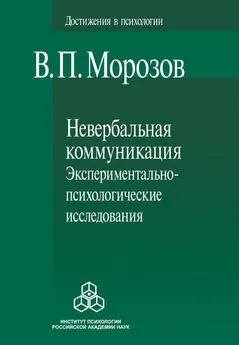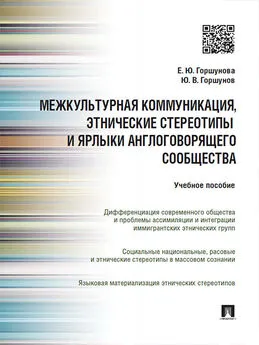Артемий Романов - Межпоколенческая коммуникация
- Название:Межпоколенческая коммуникация
- Автор:
- Жанр:
- Издательство:Книжный дом «ЛИБРОКОМ»
- Год:2009
- Город:Москва
- ISBN:нет данных
- Рейтинг:
- Избранное:Добавить в избранное
-
Отзывы:
-
Ваша оценка:
Артемий Романов - Межпоколенческая коммуникация краткое содержание
Впервые на русском языке приводится подробный анализ факторов, которые влияют на межпоколенческую коммуникацию внутри и вне семьи. Читатель познакомится с результатами проведенных автором социолингвистических опросов, проливающих свет на коммуникативное поведение россиян и их восприятие общения с людьми разного возраста. В работе приводятся многочисленные примеры общения между поколениями, как внутри семьи: между родителями и детьми, бабушками, дедушками и их внуками, тещами и зятьями, свекровями и невестка ми; так и вне семейного круга. Предлагаются практические рекомендации и советы, позволяющие решать задачи повышения уровня эффективности коммуникации между представителями разных поколений.
Книга адресована специалистам, интересующимся проблемами социолингвистики и речевой коммуникации, студентам, аспирантам и преподавателям вузов, социальным работникам и всем, чья профессиональная или общественная деятельность связана с коммуникацией между людьми разного возраста.
Межпоколенческая коммуникация - читать онлайн бесплатно полную версию (весь текст целиком)
Интервал:
Закладка:
Boden, D., Bielby, D. The past as resource: A conversational analysis of elderly talk. Language and Communication, 1986, 6, 73-89.
Bonnesen, J., Hummert, M. Painful self-disclosures of older adults in relation to aging stereotypes and perceived motivations. Journal of Language and Social Psychology, 2002,21,3,275-301.
Bryant, C., Conger, R., Meehan, J. The influence of in-laws on the change in marital success. Journal of Marriage and Family, 2001, 63, 614-626.
Cai, D., Giles, H., Noels, K.. Elderly perceptions of communication with older and younger adults in China: Implications for mental health. Journal of Applied Communication Research, 1998, 26, 32-51.
Catan, L., Dennison, C., Coleman, J. Getting Through: Effective Communication in the Teenage Years. London: ВТ Forum/Trust for the Study of Adolescence, 1996.
Caughlin, J., Afifi, T. When is topic avoidance unsatisfying? Examining moderators of the association between avoidance and dissatisfaction. Human Communication Research, 2004, 30, 4, 479-513.
Caughlin, J., Golish, T. An analysis of association between topic avoidance and dissatisfaction: comparing perceptual and interpersonal explanations. Communication Monographs, 2002, 69, 275-295.
Chen, Y., King, B. Intra- and intergenerational communication satisfaction as a function of an individual’s age and age stereotypes. International Journal of Behavioral Development, 2002, 26, 6, 562-570.
Cherlin, A., Furstenberg, F. The New American Grandparent: A Place in the Family, a Life Apart. New York: Basic Books, 1986.
Chow, N. W. Diminishing filial piety and the changing role and status of the elders in Hong Kong. Hallym International Journal of Aging, 1999, 1,67-77.
Chowdhurry, B. The Last Dive: A Father and a Son s Fatal Descent into the Ocean s Depths. New York: HarperCollins, 2000.
ChudacofF, H. P. How Old Are You? Age Consciousness in American Culture. Princeton, NJ: Princeton University Press, 1989.
Cicerelli, V. Helping Elderly Parents: The Role of Adult Children. Boston: Auburn House, 1981.
Cicirelli, V. Attachment theory in old age: Protection of the attached figure.
In K. Pillemer & K. McCartney (Eds.), Parents-Child Relations throughout Life. Hillsdale, NJ: Lawrence Erlbaum Associates, 1991, 2-JI2.
Cicirelli, V. Intergenerational communication in mother-daughter dyad regarding caregiving decisions. In N. Coupland & J. Nussbaum (Eds.) Discourse and Life-span Identity. Newbury Park, CA: Sage, 1993,216-236.
Clark, C. From Father to Son: Showing your Boy How to Walk with Christ. New York: Navpress Publishing Group, 2002.
Clarke, K. From Aging Soviets to US Citizens: Immigration, Aging, and the Cultural Construction of Old Age in New York City. Ann Arbor, Ml: University of Michigan Dissertation Service, 2003.
Coleman, P. Aging and Reminiscence Process: Social and Clinical Implications. Chichester, UK: Wiley, 1986.
Coupland, J., Coupland, N., Giles, H., Henwood, K., Wiemann, J. Elderly selfdisclosure: Interactional and intergroup issues. Language and Communication, 1988, 8, 109-131.
Coupland, N., Coupland, J., Giles, G Language, Society and the Elderly. Discourse, Identity and Ageing. Cambridge, MA: Blackwell, 1991.
Covey, H. Historical terminology used to represent older people. The Gerontologist, 1993,28, 291-297.
Day, R., Lamb. (Eds.) Conceptualizing and Measuring Father Involvement. Mah-wah, NJ: Lawrence Erlbaum Associates, 2004.
Dellman-Jenkins, M., Blankenmeyer, M., Pinkard, O. Young adult children and grandchildren in primary caregiver roles to older relatives and their service needs. Family Relations, 2000,49, 177-187.
Derlega, V., Metts, S., Petronio, S., Margulis, S. Self-disclosure. Newbury Park, CA: Sage. 1993.
Dick, G Men’s relationships with their fathers: Comparing men who batter women with non-violent men. Journal of Emotional Abuse, 2004, 4, 61-84.
Dillon, J. Questioning. InO. Hargie (Ed.) The Handbook of Communication Skills. London: Routledge, 1997,103-134.
Dindia, K. Sex differences in self-disclosure, reciprocity of self-disclosure, and self-disclosure and liking: three meta-analyses reviewed. In S. Petronio (Ed.) Balancing the Secrets of Private Disclosures. Mahwah, NJ: Lawrence Erlbaum Associates, 2000,21-36.
Dodson, J. Final Rounds: A Father, a Son, the GolfJoumey of a Lifetime. New York: Bantam, 2003.
Drew, L., Smith, P. Implications for grandparents when they lose contact with their grandchildren: Divorce, family feud, and geographical separation. Journal of Mental Health and Aging. 2002, 8, 95-119.
Drudy, J., Reicher, S. Collective action and psychological change: The emergence of new social identities. British Journal of Social Psychology. 2000, 39: 579-604.
Drury, J., Dennison, C. Representations of teenagers among police officers: Some implications for their communication with young people. Youth and Policy. 2000, 66, 62-87.
Drury, J. Adolescent communication with adults in authority. Journal of Language and Social Psychology. 2003, 22, 1: 66-73.
Dunn, J., Bretherton, L., Munn, P. Conversations about feeling states between mothers and their young children. Developmental Psychology. 1987, 23, 132-139.
Duval, L. L., Ruscher, J. B., Welsh, K., & Catanese, S. P. Bolstering and undercutting use of the elderly stereotype through communication of exemplars: The role of speaker age and exemplar stereotypicality. Basic and Applied Social Psychology, 2000, 22,137-146.
Egan, G The SkilledHelper. California: Brooks/Cole, 2002.
Eckert, P. Linguistic Variation as Social Practice. The Linguistic Construction of Identity in Belten High. Cambridge, MA: Blackwell, 2000.
Fiehler, R. Language and age: how does language change when we become older? Sprachreport, 2002, 18, 2, 21-25.
Fingerman, K. Aging Mothers and their Adult Daughters: A Study in Mixed Emotions. New York: Springer, 2001.
Fisher, C., Miller-Day, M. The mother-adult daughter relationship. In K. Floyd & M. Morman (Eds.) Widening the Family Circle. New Research on Family Communication. Thousand Oaks, CA: Sage, 2006, 3-20.
Fisher, L. R. Between mothers and daughters. Marriage and Family Review. 1991, 16, 237-248.
Fox, S., Giles, H. Accommodating intergenerational contact: A critique and theoretical model. Journal of Aging Studies, 1993, 7, 423-451.
Gallois, C., Giles, H., Ota, H., Pierson, H, Ng, H., Lim, T., Maher, J., Somera, L., Ryan, E., Harwood, J. Intergenerational communication across the Pacific Rim: The impact of filial piety. In J. C. Lasry, J. D. Adair,& K. Dion (Eds.). Latest Contributions to Cross-Cultural Psychology. Lisse, The Netherlands: Swets & Zeilinger, 1999, 192-211.
Giles, H., Coupland, N. Language: Context and Consequences. Milton Keynes: Open University Press, 1991.
Giles, H., Liang, B., Noels, K., McCann, R. Communicating across and within generations: Taiwanese, Chinese-American, and Euro-American perceptions of communication. Journal of Asian Pacific Communication, 2001, 11,2, 161-179.
Giordano G, J. Effective communication and counseling with older adults. International Journal of Aging and Human Development, 2000, 51,315-324.
Gold, D., Andres, D., Arbuckle, T., Schwartzman, A. Measurement and correlates of verbosity in elderly people. Journal of Gerontology, 1998, 43, 27-33.
Golish, T. Changes in closeness between adult children and their parents: A turning point analysis. Communication Reports, 2000, 13, 79-98.
Gottlieb, A. Sons Talk about their Gay Fathers: Life Curves. New York: Harrington Park Press, 2003.
Gudleski, G, Shean, G Depressed and nondepressed students: differences in interpersonal perceptions. Journal of Psychology, 2000,134, 56-62.
Gudykunst, W., Matsumoto, Y. Cross-cultural variability of communication in personal relationships. In W. B. Gudykust, S. Ting-Toomey, & T. Nishida (Eds.), Communication in Personal Relationships Across Cultures, Thousand Oaks, CA: Sage, 1996, 19-56.
Haas, A., Sherman, M. Reported topics of conversation among same-sex adults. Communication Quarterly, 1982, 30, 332-342.
Hajek, C., Giles, H. The old man out: an intergroup analysis of intergenerational communication among gay men. Journal of Communication, 2002, 52: 698-714.
Hamilton, H. E. Language and Communication In Old Age: Multidisciplinary Perspectives. NY: Garland, 1999.
Hargie, O., Dickson, D. Skilled Interpersonal Communication. Research, Theory, and Practice. New York: Routledge, 2004.
Harwood, J., Giles, H., Ryan, B. Aging, communication, and in group theory: Social identity and intergenerational communication. In J. Nussbaum and J. Coupland (Eds.), Handbook of Communication and Aging Research. Mahwah, NJ: Lawrence Erlbaum, 1995,133-159.
Harwood, J. Communication media use in the grand-parent-grandchild relationship. Journal of Communication. 2000, 50, 56-78.
Harwood, J. Comparing grandchildren’s and grandparent’s stake in their relationship. International Journal of Aging and Human Development, 2001, 53, 205-220.
Harwood, J. Hewstone, M., Paolini, S., Voci, A. Grandparent-grandchild contact and attitudes toward older adults: Moderator and mediator effects. Personality and Social Psychology Bulletin, 2005, 31, 393-406.
Hepburn, A. Teachers and secondary school bullying: A postmodern discourse analysis. Discourse and Society. 1997, 8, 27-48.
Hess, J. Maintaining non-voluntary relationships with disliked partners: an investigation into the use of distancing behaviors. Human Communication Research, 2000, 26, 458-488.
Hetzel, L., Smith, A. The 65 and Over Population: 2000. Washington DC: Census Brief, 2000.
Ho, D. Filial piety, authoritarian moralism, and cognitive conservatism in Chinese societies. Genetic, Social and General Psychology Monographs, 1994, 120, 347-365.
Hofstede, G Culture’s Consequences. Beverly Hills: Sage, 1980.
Holladay, S. «Have fun while you can,» «You’re only as old as you feel,» and «Don’t ever get old!»: an examination of memorable messages about aging. Journal of Communication. 2002, 52,681-697.
Hummert, M., Shaner, J. Patronizing speech to the elderly as a function of stereotyping. Communication Studies, 1994,45, 145-158.
Hummert, М., Shaner, J., Garstka, T., Henry, C. Communication with older adults: The influence of age stereotypes, context, and communicator age. Human Communication Research, 1998, 25, 125-152.
Hummert, M., Mazloff, D. Older adult’s responses to patronizing advice: balancing politeness and identity in context perceptions of patronizing speech. Journal of Language and Social Psychology, 2001, 20, 168-196.
Ikels, C., Keith, J., Dickerson-Putnam, J., Draper, P., Fry, C., Glascock, A., Harpendink, H. Perceptions of an adult life course. A cross cultural analysis. Aging in Society, 1992,12,49-84.
Ilardo, J. Father-Son Healing: An Adults Son's Guide. New York: New Harbinger, 1993.
Ingersoll-Dayton, B., Starrels, M., Dowler, D. Care-giving for parents and parents-in-law: Is gender important? The Gerontologist. 1996, 36, 483-491.
Jones, K., Kramer, T., Armitage, T., Williams, K. The impact of father absence on adolescent separation-individuation. Genetic, Social, and General Psvchologv Monographs, 2003, 129, 73-95.
Читать дальшеИнтервал:
Закладка:










